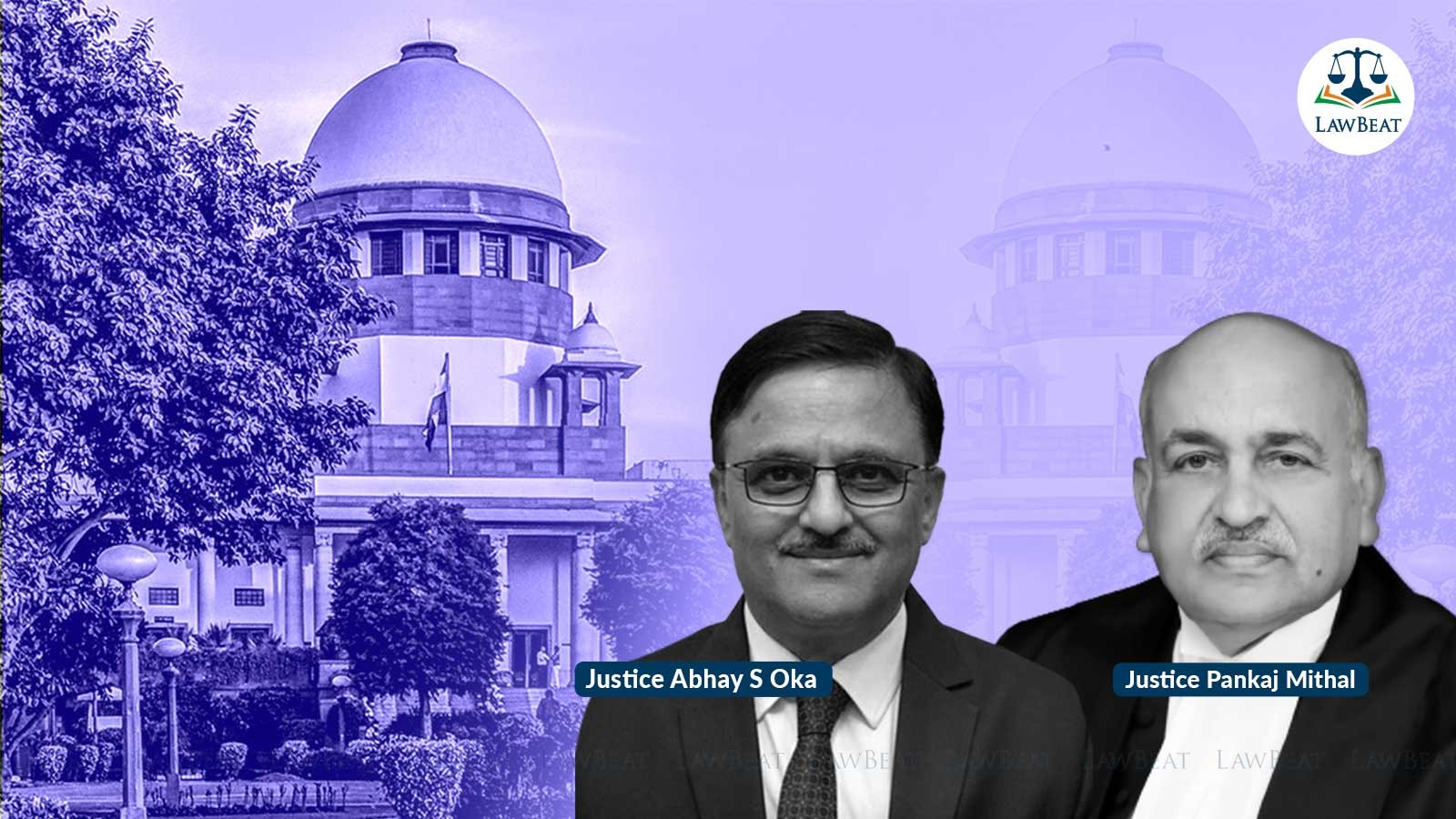Not an empty formality to hold inquiry if accused to be tried as an adult: SC

Supreme Court says holding an inquiry in terms of clause (i) of sub-section 1 of Section 19 is not an empty formality as the trial of a child as an adult and his trial as a juvenile by the Juvenile Justice Board has different consequences
The Supreme Court has ruled that holding an inquiry, whether a person is required to be tried as an adult, is very crucial as if it is found otherwise, he would be required to be proceeded as per the beneficial provisions of the Juvenile Justice Act.
"Holding an inquiry in terms of clause (i) of sub-section 1 of Section 19 is not an empty formality. The reason is that if the Children's Court comes to the conclusion that there is no need to try the child as an adult, he will be entitled to be treated differently in the sense that action can be taken against him only in terms of Section 18 of the JJ Act," a bench of Justices Abhay S Oka and Pankaj Mithal said.
The apex court set aside a Madhya Pradesh High Court's order which has rejected a claim by an accused on non-compliance with the requirement of clause (i) of subsection 1 of Section 19 of the Juvenile Justice (Care and Protection of Children) Act, 2015 by the Children’s Court.
The accused along with others was named as accused in a charge sheet filed on September 12, 2016 for offences of murder, dacoity under the penal code and other offences under the the Madhya Pradesh Dakaiti Aur Vyapharan Prabhavit Kshetra Adhiniyam,1981 (MPDVPK Act) and Section 25 and 27 of Arms Act,1959.
The appellant filed an application before the Children's Court (a Special Court constituted for trials of offences under the MPDVPK Act) seeking compliance with the requirements of Subsection 1 of Section 19 read with Sections 6 and 15 of the JJ Act. He also relied upon provisions the Juvenile Justice (Care and Protection of Children) Model Rules, 2016.
The trial court rejected his application. The High Court also did so having noted the antecedents of the appellant and the fact that the present age of the appellant was 24 years. Moreover, the High Court held that the Special Court constituted for the trials of the offences under the MPDVPK Act is also a children's Court.
Referring to section 15(1) of the JJ Act, the top court said, "What is required to be done by the Juvenile Justice Board is holding an inquiry for making a preliminary assessment with regard to the mental and physical capacity of the juvenile in conflict with law to commit such offence, ability to understand the consequences of the offence and circumstances in which the juvenile has allegedly committed the offence."
Based on the preliminary assessment, sub-section 3 of Section 18 empowers the Juvenile Justice Board to pass an order for transferring the trial of the case to the Children's Court which has jurisdiction to try such offences, the bench pointed out.
Citing Section 19 of JJ Act, the bench said there are two parts to sub-section 1. The first part requires the children's Court to decide whether there is a need for trial of the child as an adult as per the provisions of the Code of Criminal Procedure, 1973. If the Court is satisfied that the child needs to be tried as an adult as per the provisions of CrPC, the Children's Court can proceed with the trial and thereafter pass an appropriate order subject to the provisions of sections 19 and 21 of the JJ Act, it said.
"Clause (ii) of sub-section 1 of Section 19 is very crucial which indicates that though the word 'may' have been used in the opening part of sub-section 1 of Section 19, the same will have to be read as 'shall'," the bench said.
The court further said Clause (ii) provides that after examining whether there is a need for a trial of the child as an adult, if the children's Court comes to the conclusion that there is no need for the trial of the child as an adult, instead of sending back the matter to the Board, the Court itself is empowered to conduct an inquiry and pass appropriate orders in accordance with provisions of Section 18 of the JJ Act.
"The trial of a child as an adult and his trial as a juvenile by the Juvenile Justice Board has different consequences," it said.
The court said the HC's observation that the order passed under sub-section (3) of Section 18 has attained finality completely ignores that the order under subsection (3) of Section 18 is not a final adjudication on the question of trying the child as an adult.
"The reason is that the order under sub-section (3) of Section 18 is based on a preliminary assessment made under Section 15. As such order is based only on a preliminary assessment, the law provides for a further inquiry in terms of subsection (1) of Section 19 by the competent Children’s Court. Hence, the Children’s Court cannot brush aside the requirement of holding an inquiry under clause (i) of sub-section (1) of Section 19," the bench said.
The bench set aside the HC's orders and directed the Special Court to comply with the requirement of subsection 1 of Section 19 of the JJ Act.
"We expect the Special Court to decide the issue as expeditiously as possible. While holding an inquiry as contemplated by sub-section 1 of Section 19, the concerned Court shall have regard to provisions of Rule 13 of the Modal Rules framed under the JJ Act," the bench said.
